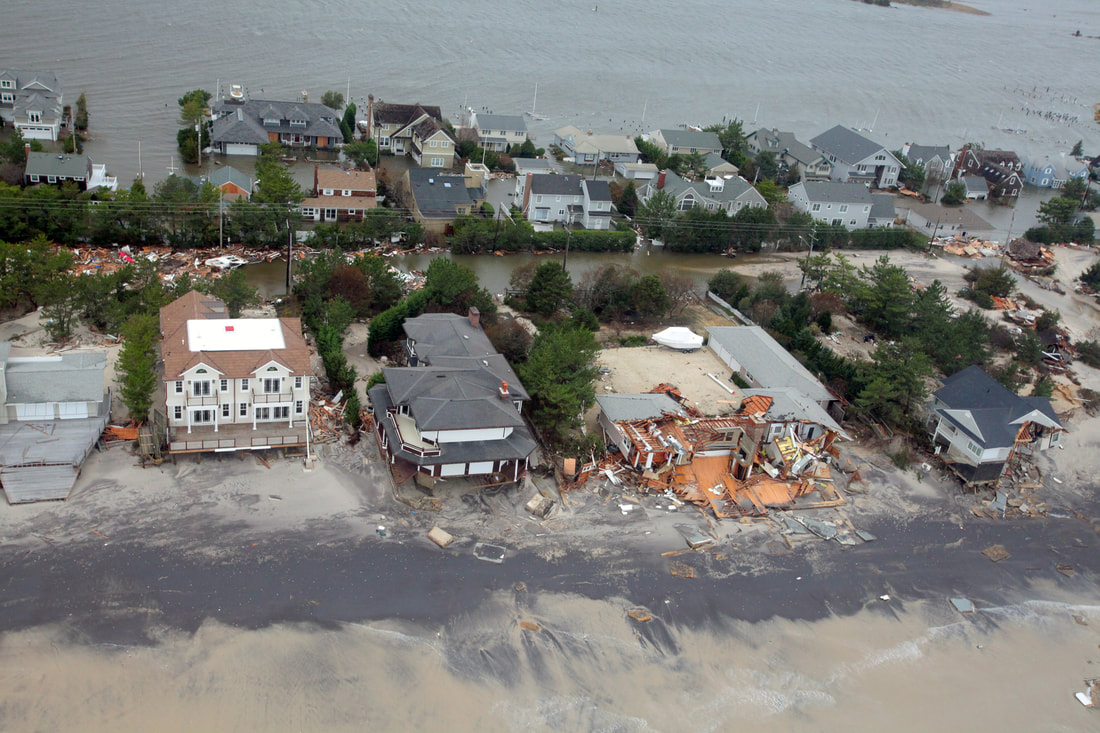|
All along the New Jersey coast municipalities are struggling to find ways to prepare for an increase in flooding and severe storm events. Most, if not all of them, are ill-equipped to find solutions on their own. Assessing and preparing for the effects of rising sea level and a changing climate are critical for preserving the social, environmental, and economic value of shore communities all along the Atlantic and Pacific coasts. Our coastal communities are home to over 124 million people, support 53.6 million jobs, and contribute $7.6 trillion to the U.S. economy, accounting for 46 percent of the nation’s economic output. Fortunately, many towns, cities, counties, and states have had help to prepare for these mounting threats. The National Oceanic and Atmospheric Administration (NOAA) has provided expertise, coordination, and funding to help communities determine their vulnerabilities and then plan the best route to become safer and more resilient. However, NOAA is now being threatened by proposed federal budget cuts that would eliminate funding for programs, grants, and research focused on coastal management, estuarine reserves, and “coastal resilience,” all of which seek to bolster the ability of shore areas to withstand the major storms and rising seas that will come with climate change.
Not only would this jeopardize the efforts of state government and non-governmental organizations to help coastal areas prepare for mounting threats, it would also hinder sharing information and solutions across jurisdictional lines, leaving states and communities to deal with the future on their own. In New Jersey, for example, NOAA funding and expertise helps support the New Jersey Department of Environmental Protection's Coastal Management Program (which is part of NOAA's National Coastal Management Program). The NJDEP's Coastal Management Program works with multiple partners to assist towns that now experience frequent “nuisance flooding,” as well as those trying to plan for bigger problems that are looming on the horizon. Working with a variety of public and private organizations, including the American Littoral Society, NJDEP has explored the immediate and secondary impacts of sea level rise and flooding. The Department's coastal program staff has also participated in the creation of tools to help communities identify threats and make better plans to rebound from the storms to come. Other NJDEP Coastal Management Program partner organizations have helped foster local conversations on risks and solutions, or provided technical support and community education. Those include Sea Grant New Jersey, Rutgers University, Jacques Cousteau National Estuarine Research Reserve, Monmouth University, Barnegat Bay Partnership, The Nature Conservancy, Partnership for the Delaware Estuary, and Stevens Institute of Technology. Without NOAA funding, expertise, and coordination, this crucial work would be considerably more difficult inside New Jersey and across other coastal states. Which makes it hard to understand the cuts proposed by the Trump administration for the 2018 federal budget. The president’s spending plan would cripple NOAA, by eliminating thousands of jobs, while cutting funding by nearly $1 billion. Climate change is already having an impact on New Jersey and scientists say it will only get worse since sea level is expected to rise by 3-12 feet by 2100. Rather than cutting back, now is the time to expand these public-private partnerships that are helping communities shore up their coastal defenses, through nature-based ecological solutions -- such as marsh restoration and oyster reef creation -- or improvements to vital infrastructure, including roads, bridges and drinking water systems. There are even potential financial benefits for people living in communities that are proactive and prepared, through reduced flood insurance premiums. While the cuts to NOAA would drown efforts that help communities prepare for the future, there is something we can do. While the President has proposed a spending plan that focuses on his priorities, only Congress can turn that concept into an actual budget for the federal government. Debate on the 2018 federal budget has begun in the US House and Senate. Even some Republican lawmakers have expressed misgivings on the plan delivered by the President. THIS week is a perfect time to contact your member in the House of Representatives and ask them to help protect the future of the Jersey Shore and the entire US Coast by restoring funding to NOAA. If you live in New Jersey’s Representative Rodney Frelinghuysen’s district, he is an especially great legislator to reach, as he chairs the committee in charge of developing the bills that set funding levels for our federal agencies like NOAA. Click here to find your Representatives, along with their office numbers. Comments are closed.
|
Archives
July 2024
Categories
All
|


